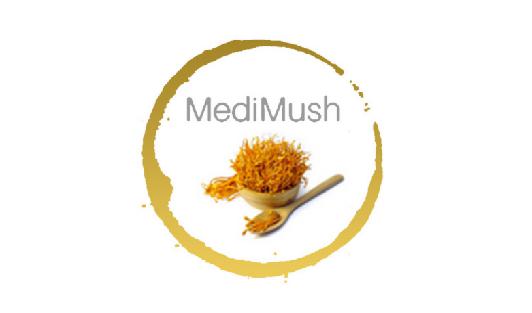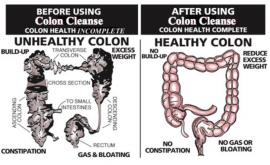Could you be Addicted to Sugar?
 Could you be Addicted to Sugar?
Could you be Addicted to Sugar?
We are pleasure-seeking beings, there is no doubt about that. In the modern Western world, we have a set number of activities that we indulge in not primarily because they are in our best interests, but because we gain some kind of ‘reward’ in terms of sensation.
Drinking alcohol is one, sex is one, consuming junk food and sugar is another. In terms of the latter, it’s the pleasurable sensations in the brain translating to a sweet taste that gets us repeating the pattern over and over.
The neurotransmitter dopamine is released in the brain, as are hormones that trigger your body to store a memory about how ‘good’ that experience was. This means you’re more likely to do it next time you have the opportunity.
Not everybody goes crazy for sugar, and some do prefer sour or savoury tastes, but the majority of people seem to prefer sugar. This might be why it’s in everything… or could it be that it’s in everything because it’s so addictive?
Not all sugar is the same
There are different kinds of sugar, of course, and when looking for berries we know that ripe equal sweet and sugary, whereas not ripe equals sour and indigestible – or poisonous. Fruit isn’t really the issue here, though.
The long-chain sugars in fruit are not the kinds that are addictive and damaging. It is the refined sugar we need to watch out for, but it has become such a widely accepted part of our culture that not enough of us bat an eyelid at the sugar content in so many food items. The problem is that we are addicted, whether we realise it or not.
A typical British diet can contain almost 240 teaspoons of excess sugar per week; that’s a lot of extra sugar, and there has to be a reason for it. When you consider that the sugar hit you get works the same way in the brain as other addictions like cocaine, heroin and nicotine, it starts to make sense. Dopamine is released and the ‘reward pathway’ is taken over by these substances and users become addicted to the feeling they get.
If sugar is consumed over an extended period, the availability of dopamine receptors in the brain is diminished and the proteins that transport the dopamine are inhibited. All of this leads to an increased need for sugar to keep attaining the same hit.
Detoxing from sugar can be tough
If you’re not sure you’re addicted to sugar, you won’t really know until you cut it out completely. In the same way that you’d expect to feel pretty awful from coming off caffeine, you can expect to suffer a little coming off refined sugar – and the cravings can be overwhelming. Your body will be sending you signals and there is a good chance that you’ll try to compensate by overeating something else; carbohydrates for instance. Too many carbs is a problem in itself; these will convert to sugar in the bloodstream.
Sugar cravings are notoriously persistent, but generally, detoxing gets easier after around a week. Sugar withdrawal is not much fun and is dependent on how much sugar a person regularly consumes, they may experience symptoms such as teeth chattering, tremors and shakes, anxiety and feelings of depression.
Studies have shown that people withdrawing from sugar are likely to behave in a more passive way than an active one, indicating decreased motivation. It is also thought that sugar withdrawal leads to uncharacteristic impulsivity and moodiness. This explains why people embarking on fasts can struggle initially with irritability and food obsession, leading to binge eating and, well… failure.
Can you afford to ignore a sugar habit?
Sugar addiction is a more commonly accepted theory now, but it is still difficult to avoid completely unless you’re prepared to go without in cafes, restaurants etc., and/or carry your own supply of healthy sweeteners around. There are a lot of anecdotes available to support that getting off sugar completely leads to a major surge in health and vitality.
The question is, what’s the upshot if you don’t get off it? It depends on how much you consume, but sugar addiction doesn’t just mean more dental work and time on the treadmill; if you are one of the many people that gradually develop systemic candida, you will find that you have a lot more on your plate than you imagined.
Giving up anything that seems normal and leads to pleasurable feelings isn’t easy, especially when it’s so prolific and withdrawal symptoms are unpleasant. Provided that you’re not dealing with a candida problem, you will probably be mostly free of your sugar addiction symptoms in around forty days. When you do encounter sugary foods, they’ll probably seem too sweet, which is a good indicator you’re on the home stretch. (Hint: probably wise not to take another bite!)
If you think that you may be a victim of the global candida endemic, there are things you can do. It doesn’t need to be as challenging as it has been in the past to overcome candida, but it does mean changes to your diet and lifestyle; this is unavoidable. Firstly, determine whether you have it.
Secondly, consider whether your long-term health is more important than the short-term highs you get from refined sugar. If you come to the sensible conclusion that your health is more important, talk to us at MediMush – we are experts in health and we’ve helped many people to get well again…
Sugar craving can also be caused by candida overgrowth. A simple test for acidity can be done in the comfort of your own home




